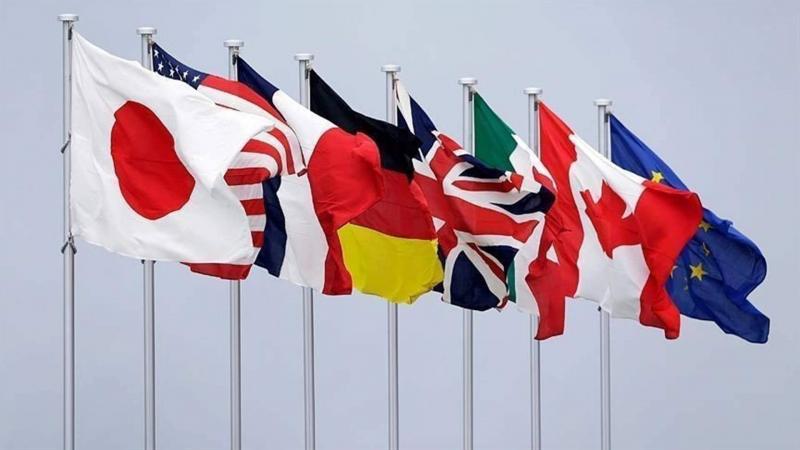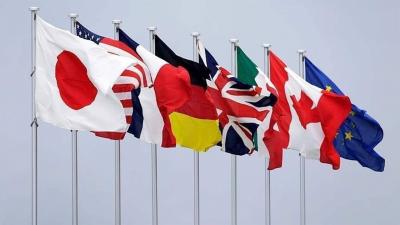The foreign ministers of the G7 discussed ways to revitalize peace efforts in the Middle East and the "day after" in the Gaza Strip once the conflict there subsides during their two-day summit in Tokyo. Japan, hosting the summit, stated in a statement that the topic was raised during a working dinner late last night, and the group would continue discussions today, Wednesday, on the crisis between Israel and Gaza, the Ukraine-Russia war, and issues related to China.
The statement did not provide details about the options under discussion if Hamas is ousted from Gaza as a result of the ongoing Israeli bombardment of the Palestinian territory. The long-term plans of Israel regarding Gaza remain shrouded in ambiguity. In one of the first direct comments on this issue, Netanyahu stated this week that Israel seeks to assume security responsibility in Gaza "indefinitely." However, Israeli Foreign Minister Eli Cohen told the Wall Street Journal that Israel prefers the region to be overseen by an international coalition that includes the United States, the European Union, and predominantly Muslim countries, or managed by local political leaders in Gaza.
Diplomats in Washington, the United Nations, the Middle East, and beyond have begun to explore options. Reuters reported this month that discussions include the deployment of a multinational force in Gaza post-conflict, the formation of a temporary Palestinian-led administration that excludes Hamas politicians, a temporary role for neighboring Arab countries in security and governance, and temporary United Nations oversight of the territory.
The G7 foreign ministers are expected to issue a joint statement addressing the Israel-Gaza crisis later today, Wednesday, which would be the second of its kind since the outbreak of the conflict on October 7th. Japanese Chief Cabinet Secretary Hirokazu Matsuno stated on Wednesday that the statement will present the "unified stance" of the G7 regarding the situation in the Middle East. Japanese media reported today that the statement is expected to include a call for a humanitarian ceasefire and temporary pauses in fighting to allow aid into the besieged enclave.
Netanyahu indicated that Israel would consider "small tactical pauses," but both he and his close ally the United States, along with other Western countries, have rejected calls for a ceasefire, claiming that it would allow Hamas to regroup. The Group of Seven industrialized nations includes the UK, Canada, France, Germany, Italy, Japan, and the United States, and also includes the European Union as a participant.




